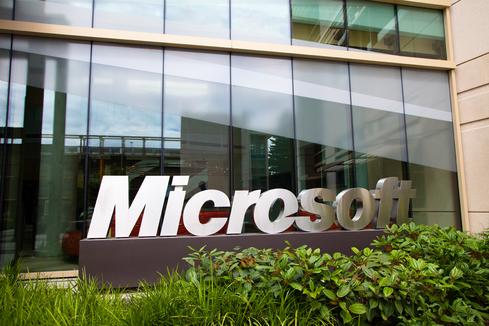HP Buys Aruba: What's Next?
HP is buying Aruba Networks for nearly $3 billion. That's the simple part. The hard part is figuring out what the purchase means for your network.


6 Microsoft Acquisitions: What Do They Mean?
6 Microsoft Acquisitions: What Do They Mean? (Click image for larger view and slideshow.)
HP is buying Aruba Networks. That's the simple part. Figuring out whether this is a good thing for the companies and their customers is where things get interesting.
While rumored for a while, HP and Aruba made it official on March 2.
Aruba's selling price was $24.67 a share, or nearly $3 billion. While not the premium over the most recent share price that some acquisitions command, the price is only 1% below Friday's close -- a close that represented a significant run-up in share price due to speculation about this merger.
The Wall Street Journal quotes Cantor Fitzgerald analysts as saying that the merger is a good thing for both partners, though the analysts also noted that they thought HP should be spending its money on cloud and big data technologies rather than wireless networking. The view from technology analysts we talked to was similar, seeing some good potential coupled with nontrivial risk.
Charles King, principle analyst at Pund-IT, Inc., said, "I think it will probably be good for both parties. That's because there's very little overlap between the products HP already has and those Aruba focuses on. They're pitching this as a combination of Aruba wireless and HP backend switching."
He added that the combination of Aruba and HP seems designed to go after a single target.
"Aruba is considered to be the second largest player in the mobile space, and by combining with HP the two will be in a better position to take on market leader Cisco," King said.
His focus on the large enterprise space was echoed by other analysts and commentators we spoke with.
Tom Hollingsworth, Network Computing columnist and writer at The Networking Nerd, said that he sees the combination of the two companies as a clear infrastructure play.
"[Aruba's] Clear Path technology helps [HP] from a management perspective. There was a lot done to integrate it into [HP's] Intelligent Management Center (IMC) already," Hollingsworth said, explaining, "Wireless is the new edge, and without [HP] having a wireless strategy they would have been left in the data center market only. When you were once the second largest infrastructure company and you don't have a wireless play, you're going to find yourself getting left off of a lot of bid sheets."
HP CEO Meg Whitman reinforced that message in a statement from the HP press release announcing the acquisition: "Enterprises are facing a mobile-first world and are looking for solutions that help them transition legacy investments to the new style of IT. By combining Aruba's world-class wireless mobility solutions with HP's leading switching portfolio, HP will offer the simplest, most secure networking solutions to help enterprises easily deploy next-generation mobile networks."
A ready fit between the networking product lines of the two companies doesn't ensure that the merger will be painless. Lee Badman, a network architect for a large private university, sounded a cautionary note in a telephone interview.
"I've got to imagine that HP is hoping that it will bring them new capabilities but I have to think that it will come down to integration. Cisco has done a good job of not ruining Meraki, so if HP handles Aruba right they should get a good opportunity to make things work. If they immediately rebadge everything and try to get people to forget about Aruba, I think that will be a big mistake," Badman said.
Badman also gave voice to a reality that Aruba's acquisition could address for HP. "A lot of people just lost track of HP from the wireless perspective. If you're not a switch customer, you just don't think about HP a whole lot," Badman said.
[ Read about the world's coolest data centers. ]
The industry will now begin the watch for signs of HP getting the acquisition right (or wrong). Hollingsworth doesn't think it will be a long wait. "We're going to see new products right away. The wording from Aruba makes me think that it's going to be similar to Cisco and Meraki, where [HP is] going to do some integration but in general let Aruba go," he said.
Both Hollinsgworth and Badman expressed fears that HP could get the merger very wrong -- and that getting it wrong would be a shame from many different perspectives.
"There's some serious ill will in the market about HP buying a wireless company, so if they're willing to just take a check at the end of the month and keep hands off, the community will feel much better about this," Hollingsworth said.
Badman was even more blunt in his assessment.
"There's a lot of potential for HP to mishandle it, but I hope they don't. I just have this techie sense of mourning that the thing that was Aruba will become something else," he said. "To me it feels like HP being attached to Aruba almost takes something away from the Aruba brand. It seems like something good and pure and strong that had grown up on its own has been made a bit more uncertain."
Attend Interop Las Vegas, the leading independent technology conference and expo series designed to inspire, inform, and connect the world's IT community. In 2015, look for all new programs, networking opportunities, and classes that will help you set your organization's IT action plan. It happens April 27 to May 1. Register with Discount Code MPOIWK for $200 off Total Access & Conference Passes.
About the Author
You May Also Like






